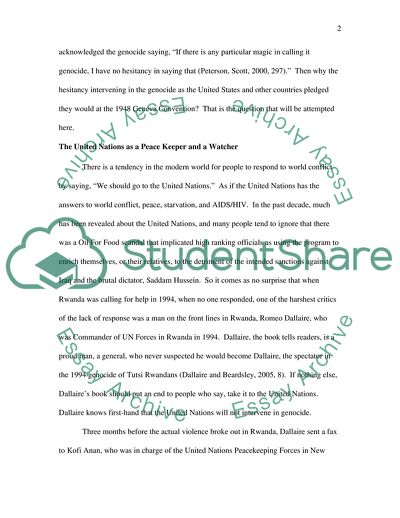Cite this document
(Large-Scale Genocide That Took Place in Rwanda in 1994 Case Study, n.d.)
Large-Scale Genocide That Took Place in Rwanda in 1994 Case Study. Retrieved from https://studentshare.org/social-science/1718709-why-did-large-scale-genocide-take-place-in-rwanda-in-1994-and-why-did-the-international-community-make-so-little-attempt-to-halt-it
Large-Scale Genocide That Took Place in Rwanda in 1994 Case Study. Retrieved from https://studentshare.org/social-science/1718709-why-did-large-scale-genocide-take-place-in-rwanda-in-1994-and-why-did-the-international-community-make-so-little-attempt-to-halt-it
(Large-Scale Genocide That Took Place in Rwanda in 1994 Case Study)
Large-Scale Genocide That Took Place in Rwanda in 1994 Case Study. https://studentshare.org/social-science/1718709-why-did-large-scale-genocide-take-place-in-rwanda-in-1994-and-why-did-the-international-community-make-so-little-attempt-to-halt-it.
Large-Scale Genocide That Took Place in Rwanda in 1994 Case Study. https://studentshare.org/social-science/1718709-why-did-large-scale-genocide-take-place-in-rwanda-in-1994-and-why-did-the-international-community-make-so-little-attempt-to-halt-it.
“Large-Scale Genocide That Took Place in Rwanda in 1994 Case Study”. https://studentshare.org/social-science/1718709-why-did-large-scale-genocide-take-place-in-rwanda-in-1994-and-why-did-the-international-community-make-so-little-attempt-to-halt-it.


